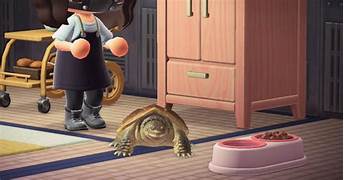Can U Have a Skunk as a Pet?
Skunks are captivating creatures known for their unique appearance and distinctive scent. As a result, debates over their suitability as pets are common. While some states have no specific regulations, others prohibit or require licenses for skunk ownership. Before considering a skunk as a pet, it's essential to understand the challenges and responsibilities involved.

Is It Legal to Own a Skunk as a Pet?
The legality of owning a skunk as a pet varies across jurisdictions. Some states allow it, while others have restrictions or outright bans. Before deciding to own a skunk, research the laws and regulations in your area.
In states where skunks are legal pets, additional considerations include municipal regulations and housing restrictions. It's important to check with local authorities and landlords to ensure skunk ownership is permitted.
Skunk Care: Diet, Habitat, and Behavior
Skunks have specific dietary and habitat requirements. A balanced diet consists of animal proteins, such as insects, worms, rodents, and small birds. Skunks also enjoy a variety of fruits, vegetables, and grains. Their diet should be rich in calcium and low in fat.
Skunks need a secure and spacious enclosure with plenty of room to roam and dig. They also require a sheltered area for sleeping and hiding. To create a comfortable habitat, provide a nesting box, climbing structures, and a designated area for toileting.
Skunks are generally solitary animals, but they can form social bonds with humans if properly socialized. With patience and positive reinforcement, they can become friendly and affectionate companions. However, it's important to remember that skunks remain wild animals capable of unpredictable behaviors.
Challenges of Skunk Ownership
Owning a skunk comes with several challenges. One significant concern is the pungent odor they release when threatened. Even descented skunks may still have a lingering odor, which can be unpleasant for some people.
Skunks are also prone to certain health issues, including respiratory problems, parasites, and infections. They require regular checkups and vaccinations to stay healthy.
Additionally, skunks can be destructive if not provided with adequate mental and physical stimulation. They may chew on furniture, dig up plants, and cause damage to property if left unsupervised.
Conclusion
Owning a skunk as a pet is a unique and challenging endeavor. Before making a commitment, it's essential to consider the legal, ethical, and practical implications. If you are prepared to provide the proper care and attention, a skunk can be a rewarding companion.
Declaration: All article resources on this website, unless otherwise specified or labeled, are collected from online resources. If the content on this website infringes on the legitimate rights and interests of the original author, you can contact this website to delete it.




